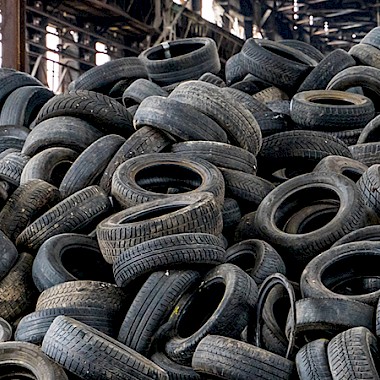FiberXpert is revolutionizing the feeding of long-fiber materials
Feeding solution for fiber recycling
Be it carbon fibers, natural fibers or PP and PET flakes – they all have one thing in common: given their multi-material consistency, they tend towards mechanical snagging and are therefore difficult to feed. Kubota Brabender Technologie’s FiberXpert provides new processing options for materials that were previously considered practically impossible to feed. It is able to feed fibers of different shapes and lengths. Among other things, this facilitates commercially and environmentally viable recycling.
The use of recycled fibers made from carbon, natural materials or plastics like PP or PET makes commercial and environmental sense in an industrial manufacturing context. The problem is that shredding these oddments and surplus materials produces flakes and fibers. They make feeding incredibly difficult, given their multi-material consistency. For a long time, this was the main problem with processing recycled composite materials.
The most common materials and their particular properties:
- Carbon and glass fibers
Glass or carbon fibers have outstanding properties. Applications include use in plastic compounds, which the automotive industry, for example, utilizes in dashboards and other components. However, processing these components generates up to 40 percent waste, that had to be disposed of previously – a considerable cost factor. Given that carbon-reinforced materials are being used more and more frequently, both environmental and commercial pressures are increasing. - Natural fibers
Natural fibers are likewise ideal for reinforcing plastics and are also a renewable raw material. Here too, feeding has to date been very difficult. Just like with carbon fibers, mechanical snagging often results in the formation of product bridges, meaning that the fibers do not reach the feed screw. “These products do not flow of their own accord, but have to be conveyed,” Jochen Keesen, Head of Kubota Brabender Technologie’s Technical Center, explains. “Agitators like standard shakers and stirrers, which have been used to date, cannot cope with these materials.” - PP, PET and plastic
The same applies to PP and PET flakes or other shredded materials like bottle flakes (shredded PET bottles). To date, flakes have had to be processed initially into regranulate material, before being reintroduced into the recycling loop. Direct feeding would enable an intermediate recycling step to be dispensed with. The manufacturing of plastic films also generates up to 30 percent of mono-material waste. Recycling the shredded film strips cut off by film edge trimmers is now a simple and convenient process. “Many problems were solved over time, like the unwelcome fanning out of glass fibers caused by friction in the agitator,” Bernhard Hüppmeier, Head of Business Development at Kubota Brabender Technologie, states. “However, one problem remained to be solved: fiber length.”
The solution: FiberXpert fiber feeder
Kubota Brabender Technologie has developed the FiberXpert, a feeder specially designed to tackle this problem. Its trough and hopper designs, screw profiles, agitator configuration and flake output provide responses to the various difficulties previously mentioned. When it was first showcased, the new feeder caused a sensation. “The many feeding test inquiries we received validate our belief that the FiberXpert is enabling us to plug a gap,” Bernhard Hüppmeier, Head of Business Development at Kubota Brabender Technologie, explains.
This feeder is now in frequent use. It can also feed long, unevenly cut, non-flowing fibers reliably. Possible applications for the FiberXpert include
- the incorporation of fiber reinforcements or fillers during the compounding process as well as biopolymers and
- the recycling of plastics and construction material fibers or even film production, where edge trim or waste from the start-up process is recycled.
Eliminating bridging
The FiberXpert is capable of feeding a wide range of different long as well as multi-material fibers. “That is what therefore enables commercially and environmentally viable recycling in the first place,” Bruno Dautzenberg explains. The fiber feeder was specially developed to handle the above-mentioned materials. It can also handle recycled PP, PET and bottle flakes, shredded plastic and carpet remnants and other fiber products like cellulose, acrylic, aramid, PPS, polyamide, polymer or polyester fibers.
FiberXpert, the new fiber feeder from Kubota Brabender Technologie.
Functionality and design
Its special fiber screw, the specially designed trough shape featuring a large inlet cross-section, a large steep-wall extension hopper as well as innovative agitator geometry and positioning enable the system to feed long, unevenly cut and non-flowing fibers reliably. “This unique, innovative design promotes forced ingredient flow into the screw,” Jochen Keesen explains. Given that the products handled have very different flow characteristics, specific applications require custom design details.
The control system plays an important role in ensuring fiber feeding reliability. The screw speed to agitator speed ratio is key here. “Our CM plus or CB plus controllers are responsible for this,” Jochen Keesen emphasizes. The optimum screw to agitator speed ratio can be determined for each specific application in tests at the Technical Center and then adjusted accordingly during commissioning. Bulk weight-dependent feed rates ranging from laboratory applications to high feed rates of more than 1000 kilograms per hour can be determined with the aid of four sizes of feeder. This therefore makes the FiberXpert eminently suitable for particularly tough feeding tasks and enables it to play its part in a high-tech circular or recycling economy.
Specific tests at the Technical Center
There is always a test line available for the FiberXpert at the Technical Center in Duisburg. Filling the feeder correctly is an important factor when using it. “Feeding the material in is an important part of the process that we are able to fully model and test in our new facilities,” Jochen Keesen, Head of the Duisburg Technical Center, explains. Given the wide range of different applications and materials that it can handle, the FiberXpert is one of those feeders that has to be configured specifically for each customer. “We now have the option of setting up four complete lines in the Technical Center, including filling,” Jochen Keesen states. “This enables us and our customers to put appropriate feeding processes in place, even for difficult-to-handle bulk materials.”
Take advantage of the opportunities in the technical center!
Our experts will advise you on your individual product and carry out extensive tests on request.
Innovative solutions for materials regarded as non-feedable
“We are certain that we have struck a chord in the market with this innovation,” says Managing Director Bruno Dautzenberg. “This feeder enables us to solve a well-known feeding problem in one go and opens up new processing avenues for a wide range of materials that were previously considered as practically non-feedable.”

